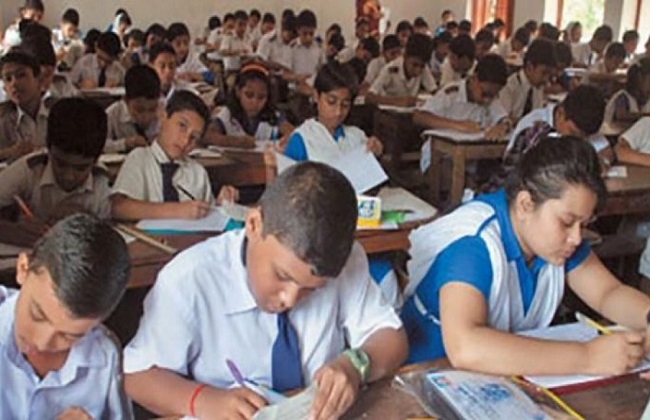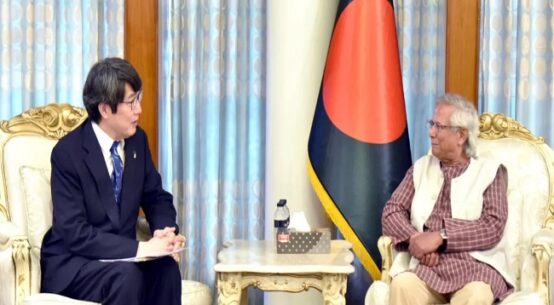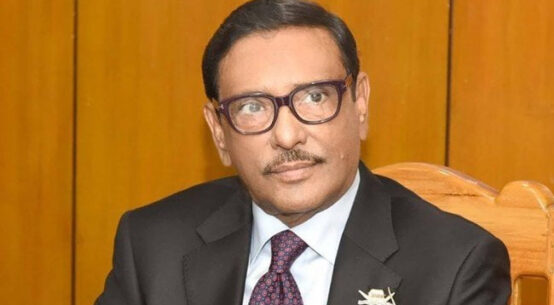
The government’s investment in primary education is decreasing, and as a result, issues such as societal issues such as child marriage, child labour, and inequity are increasing, said Centre for Policy Dialogue (CPD).
CPD held a discussion on Sunday, on education titled “Government Spending in Primary Education: Local Experiences and Recommendations” to present findings from their research.
“Income disparity, wealth disparity is increasing in Bangladesh. One of the reasons is that we have created different streams in primary education. We should not introduce two economies in the same country,” said Mustafizur Rahman, distinguished fellow at the CPD.
According to its presentation, the budget allocation for the Ministry of Primary and Mass Education decreased from 6.51% in FY17 to 4.56% in FY24.
The expenditure on this ministry as a share of total government expenditure declined from 6.38% in FY17 to 4.53% in FY22.
In her opening remark, Fahmida Khatun, CPD’s executive director, said: “We have seen that programs/projects related to education may reach urban children, but do not reach children in rural areas equally. Thus, we must figure out what kind of investment and steps are needed to eradicate these inequalities.”
Pointing out that the investment in education is very low, she also said that the 8th Five Year Plan had promised to allocate 2% of GDP to education by 2019 and 3% by 2025.
But in the new budget proposal, only 1.76% of GDP has been allocated, Khatun also remarked.
She called for the elimination of discrimination and improved quality in the education sector through adequate funding and training.
Towfiqul Islam Khan, senior research fellow at CPD, gave the keynote presentation, where he said: “In the last five years, the Primary and Mass Education Ministry has reduced the allocation compared to the budget and GDP.
“In FY17, the allocation to this ministry was 6.51% of the total budget. It has been reduced to 4.56% in the budget for FY24. Also, as a share of total government expenditure, the expenditure of the Ministry of Primary and Mass Education also decreased from 6.38% in FY17 to 4.53% in FY22.
“In comparison to GDP, in the last five years, the allocation has also decreased. The allocation in this ministry was 0.95% in FY17 which has decreased to 0.69% in the FY24 proposed budget. Expenditure of the Ministry of Primary and Mass Education as a share of GDP was 0.74% in FY17. In FY22, it decreased to 0.59%.”
The CPD study also found that insufficient government funding had hindered schools from hiring adequate staff, acquiring necessary teaching materials, improving infrastructure and management practices, recruiting additional extracurricular teachers/instructors, and enhancing security and cleanliness measures.
“Teaching has now become a transit profession. A graduate who works as an assistant primary teacher, gets a 13th-grade salary, while a government driver, who only completed eighth grade in school, gets a salary in 12th grade of the employees’ pay scale. So why should talented people stay in this profession?” said Anisur Rahman, a primary school teacher.
He mentioned that two of his colleagues had recently retired after 38 years of service without getting any promotion.
Stakeholders observed that the government primary schools across the country were suffering from poor infrastructure like congested classrooms, shortage of efficient teachers, and lack of libraries, playgrounds, access to co-curricular activities and less funding which they called barriers to quality education.
The conference was organized based on research on 30 primary schools in Gaibandha, Thakurgaon and Nilphamari.
The grim picture of overall primary-level education has been reflected in the CPD research that was conducted from April to May this year.
LGRD Minister Md Tajul Islam was present as chief guest while Debapriya Bhattacharya, distinguished fellow of the CPD, moderated the event.


